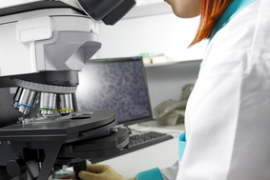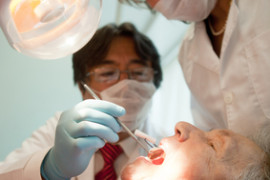A study published in PLoS ONE Pathogens appears to have found the mechanism by which periodontal bacterium P. gingivalis worsens rheumatoid arthritis.
Periodontal disease and rheumatoid arthritis are two inflammatory conditions that, despite having very different etiologies, have been scientifically and medically associated for years. While periodontal disease is caused by biofilm, inflammation, and genetics, rheumatoid arthritis is an autoimmune disorder that causes chronic inflammation throughout the joints in the body.
Previous investigations into this complex relationship have concluded that individuals with periodontal disease are more likely to have rheumatoid arthritis than those with healthy mouths, and rheumatoid arthritis patients are two times more likely to have periodontal disease. What is more, treating one disease appears to lessen the symptoms of the other.
There is also preliminary evidence that suggests periodontal bacteria play a role in osteoarthritis.
Even with this knowledge, there is much yet to learn about how these two diseases are connected. Researchers in this most recent study examined P. gingivalis infections in mice in an effort to isolate the underlying cause of the association.
They found that P. gingivalis intensifies collagen-induced arthritis in mice by expressing an enzyme (peptidylarginine deiminase) that causes the body to react in a way that advances the disease. While all mice infected with the bacterium had an increase in rheumatoid arthritis symptoms, the significant progression of the disease only occurred when the enzyme was expressed.
Whether this enzyme is the sought after causative link between rheumatoid arthritis and gum disease is not yet clear. Certainly, more research needs to be done to confirm these results and to discover whether other periodontal pathogens have a similar effect. However, as the study concludes, based on this information we may be able to derive new and innovative ways to treat patients with rheumatoid arthritis in the future.



